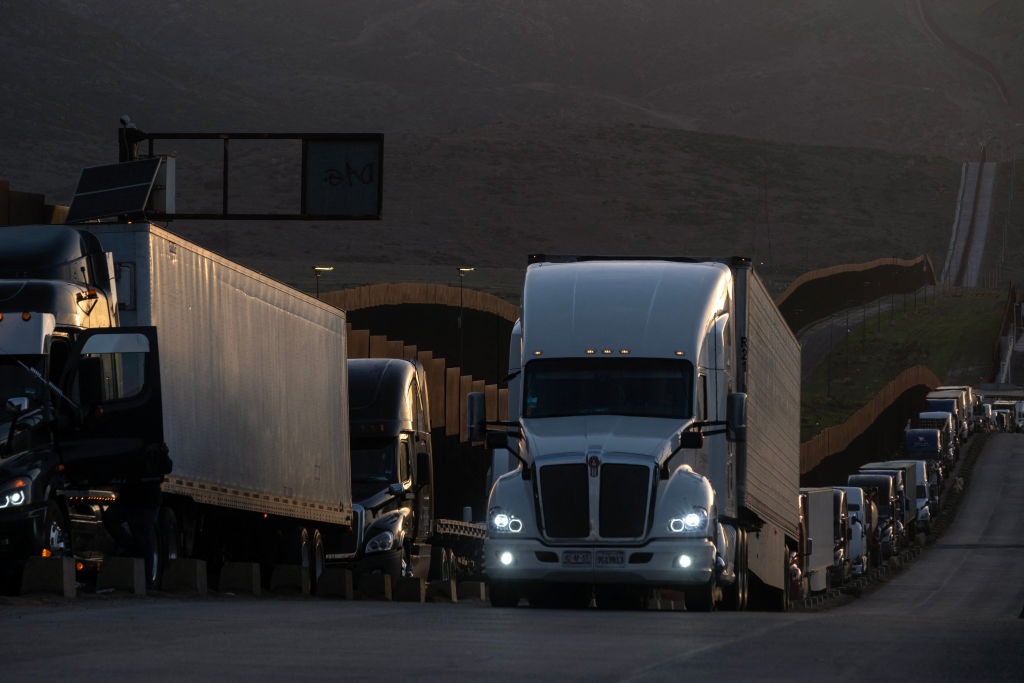Instant Pots to bibles: Where Trump's China tariffs could hit
- Consumers may be surprised by higher prices on many products if President Trump's next round of China tariffs goes through.
- Those products are under-the-radar, but still everyday items.
- Instant Pots, archery gear, sausage casings and bibles are among the goods likely to jump in price.
- Hearings on the proposed tariffs end today, as President Trump prepares to meet with China's Xi Jinping this week.
The U.S. Trade Representative got an earful from American companies this week. Over seven days of hearings before the USTR, hundreds of businesses from mobile phone makers to clothing retailers testified in Washington on the Trump administration's latest proposal to add tariffs on $300 billion of Chinese imports that aren't already subject to U.S. levies.
Contrary to what President Donald Trump has claimed, U.S. companies -- not the exporting countries -- pay tariffs on goods and services imported from China and elsewhere. While some firms can absorb the higher costs, most companies opt to push at least some of the new expenses to consumers. That means higher prices for Americans.
As the hearings end and Mr. Trump prepares to meet with China's Xi Jinping at the G-20 meeting in Osaka, Japan, this Friday and Saturday, here's a look at some unusual -- but everyday -- products that may cost consumers more if the U.S. and China can't reach an agreement and Mr. Trump imposes the next round of tariffs.
Instant Pots
Countertop cooker Instant Pot would rise in price by roughly $38 to $187 if the tariffs are imposed, according to a filing from Corelle Brands, which makes the electric multi-cooker. The product became wildly popular during Black Friday 2018 sales, according to Bloomberg. Correlle bought the manufacturer in March this year.
Corelle said there are "no other viable options" for shifting production to another country because of the specialized nature of the cooker and the low-tech patented manufacturing it requires, mastered by China. The cookers aren't a threat to U.S. national security, said Correlle in its written testimony.
Corelle also makes Pyrex cookwear. "The Chinese government is not interested in Corelle's technology," the company wrote.
Outdoor gear
Higher prices for fishing, camping and archery equipment could mean fewer licenses sold for fishing and hunting, and in turn less funding for wildlife conservation and upkeep of wild spaces for such recreation, wrote Ed Carter, president of the Association of Fishing and Wildlife Agencies, in testimony to the USTR.
Higher prices means "buyer resistance may surface, especially on larger ticket items (e.g., bows, rods, reels)." Excise tax collections would fall, and state fish and wildlife agencies would lose out, Carter wrote.
Camping and outdoor cooking equipment could also be pricier, according to testimony from Logan Outdoor Products, maker of Camp Chef equipment. The prospect threatens "our very existence while simultaneously making it more financially difficult" for Americans to cook outside, Brandon Sparrow, Camp Chef's president, wrote in a letter.
"For small companies like us, and in product areas in which China has a virtual monopoly, the additional costs of these tariffs will not be absorbed by China," Sparrow said. "The punitive duties fall on us and we cannot absorb them."
Sausage casings and pill capsules
Sausages could cost more, according to testimony from the North American Natural Casing Association. U.S. slaughterhouses export raw small intestines of hogs, lambs and sheep to China, then reimport 45% of the same casings after they're "sorted by size and made usable," according to NANCA.
Such "sizing" isn't available in the U.S. So if the tariffs are imposed, NANCA's members including Tyson, Smithfield Farmland and JBS would likely increase prices and likely cede market share to European producers that aren't subject to the duty, according to the letter.
Other specialized supplies are also in peril, according to Bright Pharma Caps, a maker of certified organic capsules used for drugs, including some chemotherapy treatments, and in the vitamin industry. It warned that the company couldn't move such specialized production out of China for years.
Only two plants in North Carolina produce cellulose and gelatin capsules domestically, making about 10 billion a year. But U.S. demand is about 400 billion, Bright Pharma said.
Rather than absorbing the 25% tariff directly, Bright Pharma said, consumers would feel a price increase in the form of higher health insurance premiums, while governments would see higher Medicare and Medicaid costs.
Bibles and children's books
Bibles are printed on "unusually thin paper" that requires specialized machines, Mark Schoenwald, president of HarperCollins Christian Publishing, said in written testimony to the USTR. Roughly 75% of what it costs to make a bible, with its complex illustrations and ultra-thin pages that make it portable, is spent in China and can't be handled elsewhere, according to Schoenwald.
"We believe the Administration was unaware of the potential negative impact these proposed tariffs would have on the publishing industry generally, and that it never intended to impose a 'Bible Tax' on consumers and religious organizations," Schoenwald wrote.
The tariffs would "send shockwaves through the children's book market," according to a letter from Penguin Random House to the USTR. A 25% tariff would mean higher costs that could "significantly impair" public and school libraries and nonprofit literacy programs, according to the company.
The "vast majority of books we print in China are children's picture books," said Penquin Random House, because Chinese printers have "unrivaled capacity and expertise" to print them."



